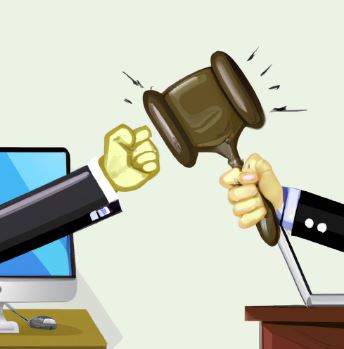


When Legal and Communications Collide: Making the Right Choice
By Richard Levick
Speaking with journalists, shareholders, customers and stakeholders is easy when the going is good. As the old saying goes, “We are all capitalists on the way up but socialists on the way down.” But when things turn bad? Communication suddenly becomes much more challenging. As another old saying goes, “The gods of crisis demand a sacrifice.”
I’m no Merlin but years of experience in the trenches of the most challenging matters globally provide the experienced crisis communications professional a sixth sense about what’s next.
Here’s a cheat sheet for CEOs and other decision makers responding publicly when things are moving in the wrong direction:
- Who is driving the bus? Legal counsel in a crisis is essential and needs to be on the bus, but unless legal exposure is the single greatest market cost, it shouldn’t be driving the bus. First, determine the greatest exposure and the likely sacrifice and then let that department or counsel drive the decision making.
- What are the interests of the people giving you information? As a leader in a crisis, you need information quickly and accurately, but it is often the thing in shortest supply.
- In a crisis, everyone should bleed the company colors. Unfortunately, personal interests often get in the way. Frequently, direct reports provide select information to avoid highlighting any of their potential culpability. It is always easier to point fingers after something has gone wrong, so this instinct is understandable. Consume as much information as you can but be sure to question the personal interest of the messenger.
- Encourage robust debate amongst different experts. You cannot get to the best decision without a healthy debate amongst disciplines. Have legal, IR, brand, C-Suite, HR, crisis communications and others calmly debate it and determine what the risks and benefits of each path are. The goal isn’t perfection but the lowest market cost.
- Embrace sacrifice: A true crisis is defined by the fact that there is no perfect path. There will be a price to pay no matter which road you choose. Identify the least costly and simultaneously most beneficial sacrifice and make it early. Pulling a product, firing a team, selling a brand, making an apology or whatever the situation demands can be the most effective tool for deflating a calamity. You cannot make that determination without having trusted counsel mentioned above do the math and determine the sacrifice.
- Never lead with the Ego: Too often, when a crisis involves a CEO, founder or other high profile executive, we hear concerns about their “reputation.” Reputation management is, of course, critical, but the business issues come first. In time — and less time with effective communications efforts — bad news on the internet can be replaced by good news in a post-crisis environment. As we say, ‘If you want to keep a secret, put it on the second page of Google.’
- We often see executives worried about their reputation and desiring to set the record straight. This can be an important strategy for the right moment, but if the narrative is already written, it is often wise to keep your head down and set the record straight later, when you control the communications, not the critics.
- In a crisis, everything is upside down: All the rules that got you here won’t necessarily get you out of the crisis. Start with a tabula rasa and reconsider all of your options. Don’t pay the bonuses. Consider a deal with the prosecutors. Recall the product voluntarily. Keep quiet or run to the light, depending on what will make the story go away. Rather than look backwards at what you have always done, understand that in a crisis, all the rules have changed. You cannot get to rebuilding reputations and brands if you have not gone through the crisis first.
- What will your adversaries do next? Many business crises have adversaries — regulators, the plaintiffs’ bar, politicians, activist shareholders, unions, NGOs and others. What are their interests and what will they do next? How will they zig if we zag? Never make decisions in a vacuum. Instead, ask, “If I were counseling them, what would I do next?” Then, plan accordingly.
- Silence can be golden. Fighting back is a natural instinct and, under the right circumstances and timing, is precisely the right strategy. 1988 presidential candidate Michael Dukakis famously learned the cost of not fighting back against the Vice President and presidential candidate George H.W. Bush, watching his double-digit lead disappear before it occurred to him to throw a punch. But sometimes silence is golden. Before you raise your head above the parapet, balance the costs between fighting back and remaining silent. In today’s exceptionally fast-moving news cycles, some crises will either be over in a day or two or be elongated if you fight back. Make sure you make the proper determination, lest you break into jail.
“I love the man that can smile in trouble, that can gather strength from distress, and grow brave by reflection. ’Tis the business of little minds to shrink, but he whose heart is firm, and whose conscience approves his conduct, will pursue his principles unto death.”
– Thomas Paine
———————————————————–
Richard Levick, Esq., @richardlevick, is Chairman and CEO of LEVICK. He is a frequent television, radio, online, and print commentator. For more insights, sign up for LEVICK’s weekly newsletter. Click here to subscribe.